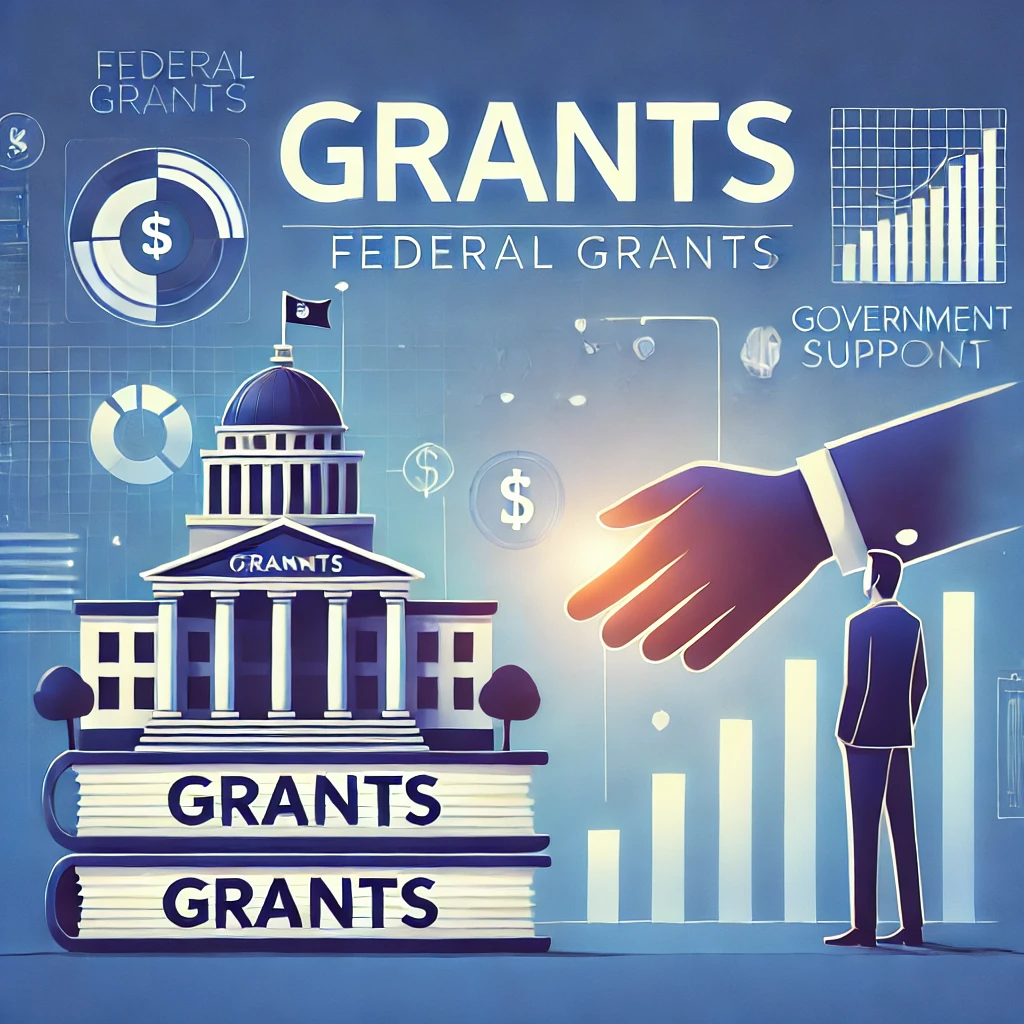
Types of Federal Grants
10 Types of Federal Grants You Need to Know: Federal grants are an essential tool that governments use to provide funding for programs, projects, and initiatives that drive public welfare and economic development. For individuals, businesses, and organizations, these grants represent an opportunity to secure funding for a variety of purposes, from research and education to infrastructure development and public health. However, understanding the different types of federal grants is crucial to maximizing these opportunities. Here, we’ll explore ten key types of federal grants you need to know.
1. Categorical Grants
Categorical grants are the most specific type of federal grants. They are allocated for narrowly defined purposes, such as building new schools, improving healthcare facilities, or supporting specific education initiatives. These grants often come with strict guidelines and requirements, meaning recipients must adhere to detailed conditions and reporting standards.
Examples:
- Title I Grants for improving education in low-income schools.
- Clean Water State Revolving Fund for environmental conservation.
Who Can Apply: Local governments, nonprofit organizations, and state agencies typically apply for categorical grants.
2. Block Grants
Block grants are broader in scope and offer more flexibility compared to categorical grants. These grants fund initiatives within general areas such as community development, public health, or social services, allowing recipients to decide how to allocate the funds within the specified domain.
Examples:
- Community Development Block Grant (CDBG) Program.
- Substance Abuse Prevention and Treatment Block Grants.
Who Can Apply: State and local governments are the primary recipients of block grants.
3. Project Grants
Project grants are awarded on a competitive basis to fund specific projects or programs. Applicants must submit detailed proposals outlining their objectives, methodology, and expected outcomes. These grants are often used for research, infrastructure development, or cultural initiatives.
Examples:
- National Science Foundation (NSF) grants for scientific research.
- Department of Transportation’s BUILD program for infrastructure projects.
Who Can Apply: Individuals, researchers, businesses, and organizations, depending on the program requirements.
4. Formula Grants
Formula grants allocate funds to recipients based on specific formulas determined by factors such as population size, income levels, or other demographic data. Unlike project grants, recipients do not compete for formula grants; instead, they receive funding based on eligibility criteria and data.
Examples:
- Medicaid funding for healthcare services.
- Federal Pell Grants for students based on financial need.
Who Can Apply: State governments, educational institutions, and eligible individuals.
5. Research Grants
Research grants are awarded to fund studies and investigations in various fields, including science, technology, medicine, and social sciences. These grants aim to advance knowledge, foster innovation, and address societal challenges.
Examples:
- Grants from the National Institutes of Health (NIH) for medical research.
- Department of Energy (DOE) grants for renewable energy studies.
Who Can Apply: Researchers, academic institutions, and private research organizations.
6. Training Grants
Training grants provide funding for programs that aim to develop skills, improve workforce capabilities, and enhance professional development. These grants often target specific industries or demographics, such as healthcare professionals or underserved populations.
Examples:
- Workforce Innovation and Opportunity Act (WIOA) grants.
- Health Resources and Services Administration (HRSA) grants for healthcare training.
Who Can Apply: Educational institutions, workforce development organizations, and nonprofits.
7. Cooperative Agreements
While not technically grants, cooperative agreements function similarly by providing funding for projects. However, they differ in that the federal government plays a more active role in overseeing and collaborating on the project.
Examples:
- NASA cooperative agreements for space exploration projects.
- Environmental Protection Agency (EPA) agreements for sustainability initiatives.
Who Can Apply: Nonprofits, research institutions, and government agencies.
8. Fellowships and Scholarships
These grants provide financial support for individuals pursuing higher education, advanced studies, or professional development. Fellowships often include funding for research, while scholarships focus on tuition and education-related expenses.
Examples:
- Fulbright Program for international exchange and research.
- National Defense Science and Engineering Graduate Fellowship.
Who Can Apply: Students, researchers, and professionals seeking advanced education.
9. Capital Improvement Grants
Capital improvement grants are provided for the construction, renovation, or enhancement of physical infrastructure. These grants are critical for developing public facilities, transportation systems, and other essential infrastructure projects.
Examples:
- Federal Transit Administration (FTA) grants for public transportation.
- U.S. Department of Housing and Urban Development (HUD) grants for affordable housing development.
Who Can Apply: State and local governments, transit authorities, and community organizations.
10. Emergency and Disaster Relief Grants
Emergency grants are allocated to respond to natural disasters, public health crises, or other emergencies. These grants are often distributed quickly to address urgent needs such as rebuilding infrastructure, providing healthcare, or supporting affected communities.
Examples:
- Federal Emergency Management Agency (FEMA) disaster relief grants.
- Coronavirus Aid, Relief, and Economic Security (CARES) Act grants.
Who Can Apply: State and local governments, nonprofits, and other organizations involved in disaster response.
How to Apply for Federal Grants
Applying for federal grants can be a competitive and complex process. Here are some steps to increase your chances of success:
- Identify Suitable Grants: Use platforms like Grants.gov to search for grants relevant to your project.
- Review Eligibility Requirements: Carefully read the grant’s eligibility criteria to ensure you qualify.
- Develop a Strong Proposal: Highlight your project’s goals, methodology, and potential impact.
- Collaborate When Necessary: Partner with other organizations to strengthen your application.
- Submit on Time: Pay attention to deadlines and ensure all required documentation is complete.
Conclusion
Federal grants offer diverse opportunities to fund initiatives that benefit society, advance knowledge, and support economic growth. By understanding the different types of grants and their specific purposes, you can strategically position yourself or your organization to access these valuable resources. Whether you’re seeking funding for education, research, infrastructure, or disaster relief, federal grants can be the key to achieving your goals and making a lasting impact.